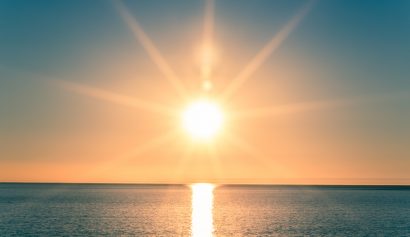Can Sunlight Help Protect You Against Nearsightedness?
Written by Dr. David Evans Last modified on August 6, 2018
Overexposure to sunlight has been linked with a variety of health problems, chief among which is the increased risk of skin cancer. It has also been linked with increased risk of developing vision problems. Hence the recommendation that people spending significant time outdoors wear sunglasses that are at least 99 percent UV absorbent (check out our 7 Eye-protecting Sunglasses Buying Tips). But a recent study published in the Journal of the American Medical Association (JAMA) suggests that a certain amount of sun exposure may actually be beneficial to longtime vision.

There are three different types of ultraviolet (UV) rays: UVA, UVB and UVC. UVA and UVB rays are the ones that have been linked with potential skin and eye damage. But according to the JAMA study findings, UVB exposure (especially during adolescence and young adulthood) can help protect your eyes from developing myopia (nearsightedness).
More than 3,000 men and women with an average age of 72 took part in the study; 371 of whom suffered with nearsightedness. Over the course of the study, the participants were interviewed about their lifestyle, behavior, health, etc. in addition to undergoing blood tests. The purpose of these interviews was to develop an estimation with regards to UVB exposure. The researchers found that participants faced with the highest levels of UVB exposure at a younger age were 30 percent less likely to become nearsighted. Interestingly enough, those who had more schooling had an increased risk of myopia. What’s the correlation? More schooling suggests more time spent indoors studying during those all-important young adult years.
The author of the JAMA study, Astrid E. Fletcher of the London School of Hygiene and Tropical Medicine, noted that “spending time outdoors is good advice for trying to reduce the chance of getting myopia.” But she was also quick to reinforce the potential dangers associated with sun overexposure, recommending that people continue to avoid spending too much time outdoors in the middle of the day when the risks for skin cancer and related eye damage are increased.
It’s important to note that even though this study suggests an eye health benefit to UVB exposure, it doesn’t mean that UVB exposure cannot damage the eyes. Overexposure is still a legitimate concern that you should take into consideration. All things in moderation.
If you’re interested in learning more about the study, you can click here.
You can also check out a previous nearsightedness blog I wrote this past summer, “Are Your Kids at Risk of Myopia?”
